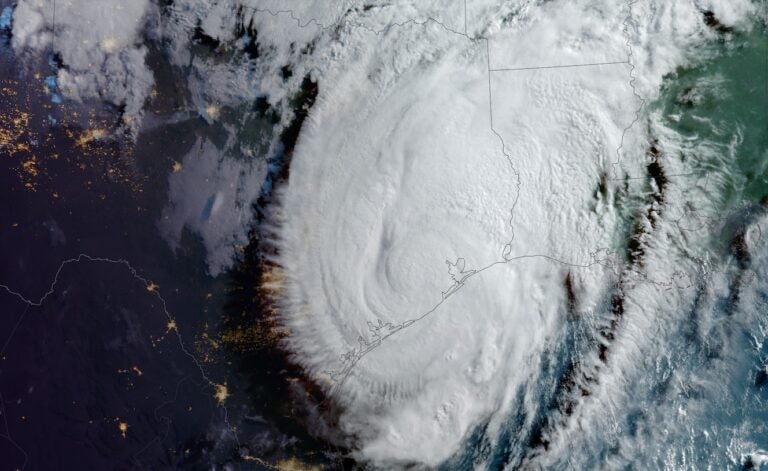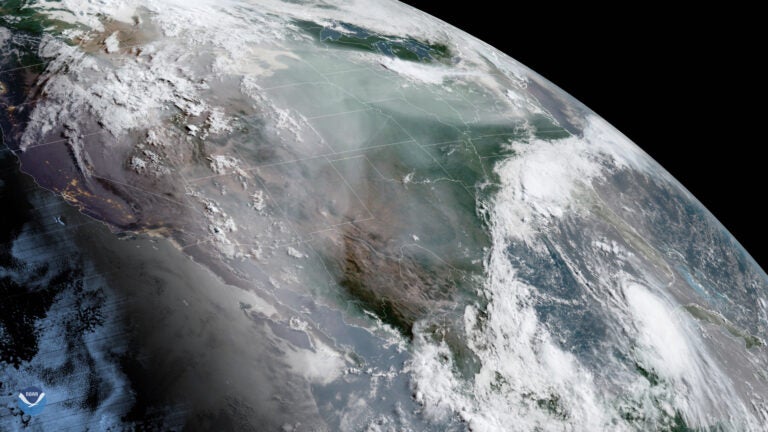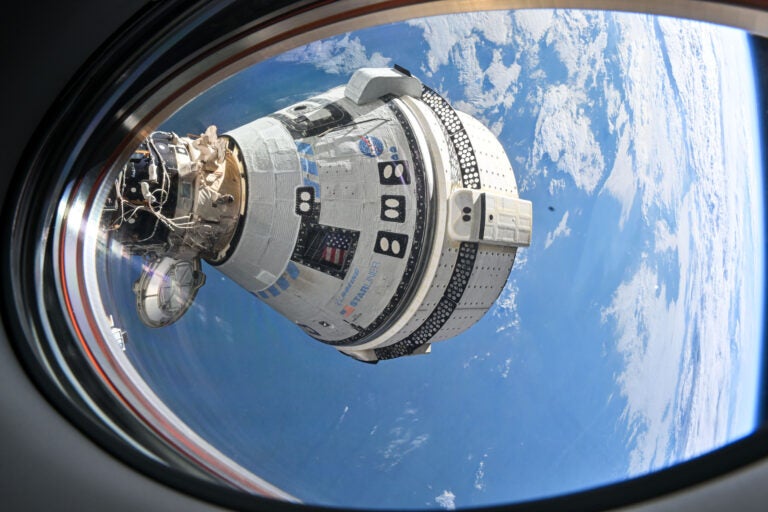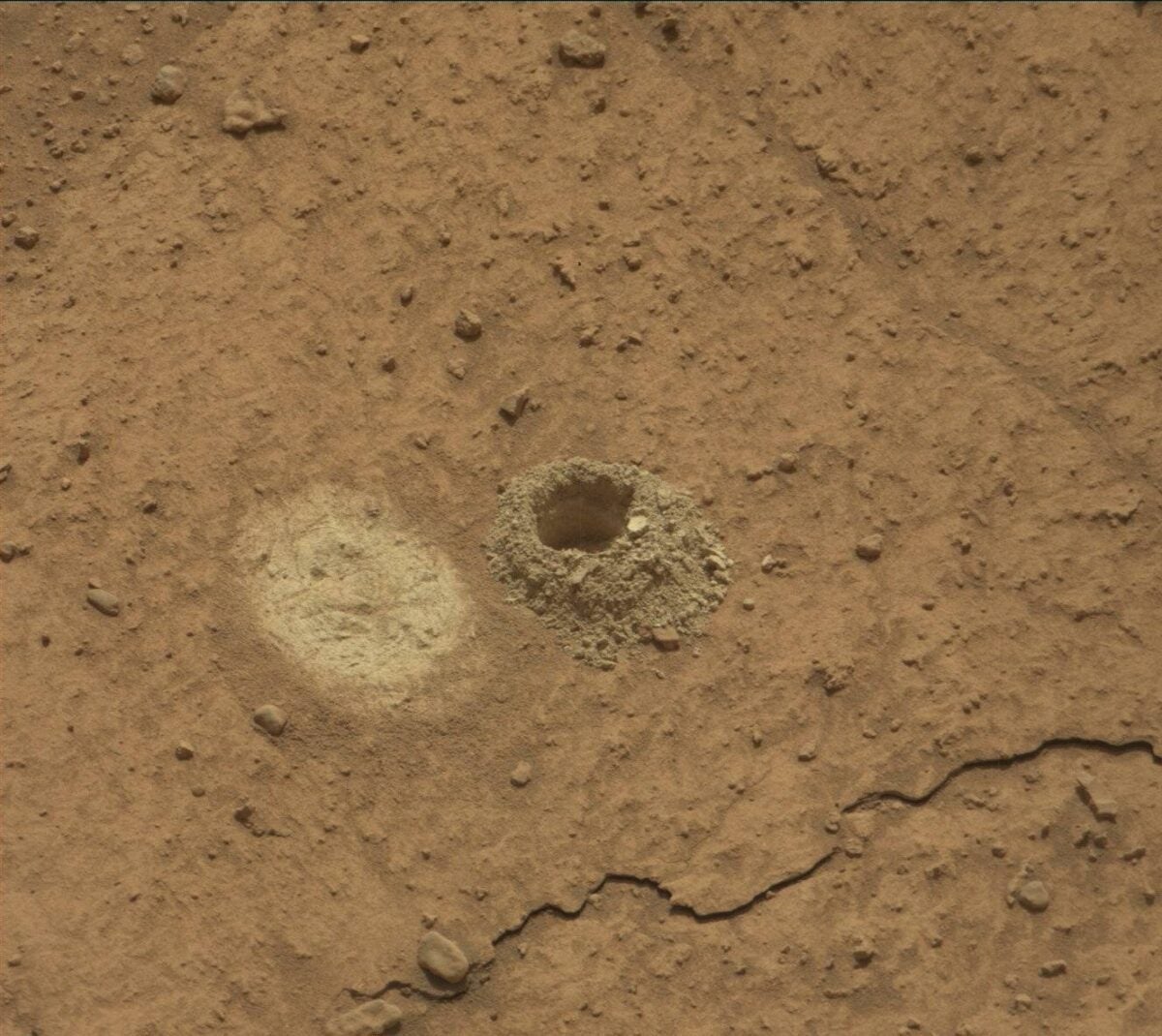
NASA’s Curiosity rover is continuing to perform experiments in Mars’ Gale Crater, even after more than 4,200 days on the martian surface. On Curiosity’s sol (the name given to a martian day) 4,214, which corresponds to June 12, 2024, the rover was given commands to drill a 0.63-inch (1.6 centimeters) hole in a rock dubbed “Mammoth Lakes.” The name comes from a town in California’s Sierra Nevada mountains.
The first thing the rover does is to conduct a pre-load test, which determines whether the drill is working and also if the chosen rock is stable enough to drill into. Unfortunately, it was not. So, the science team, after much discussion, moved the rover slightly and tried again on sol 4,222 (June 21).
As team member Alex Innanen, atmospheric scientist at York University, wrote in a NASA blog post, “All our patient waiting has been rewarded, as we were greeted with the news that our drill attempt was successful.”
But drilling the hole is only the first step. Next, the rover’s alpha-particle X-ray spectrometer must collect data. To do that, an instrument brushes and smooths the surface, and then the reading is taken. After that, the team determines whether or not a small sample of what was drilled will be delivered to the rover’s Chemistry and Mineralogy X-ray Diffraction (CheMin) instrument.
RELATED: Where did all the water on Mars go?
Finally, the investigation of the material will be done by the Sample Analysis at Mars (SAM) instrument suite. According to Innanen, that process is “quite power hungry,” but by carefully conserving power and changing the order of some of the rover’s objectives, the procedure has been done and the data has been sent back to Earth for analysis.
There are more than 40 holes drilled on Mars
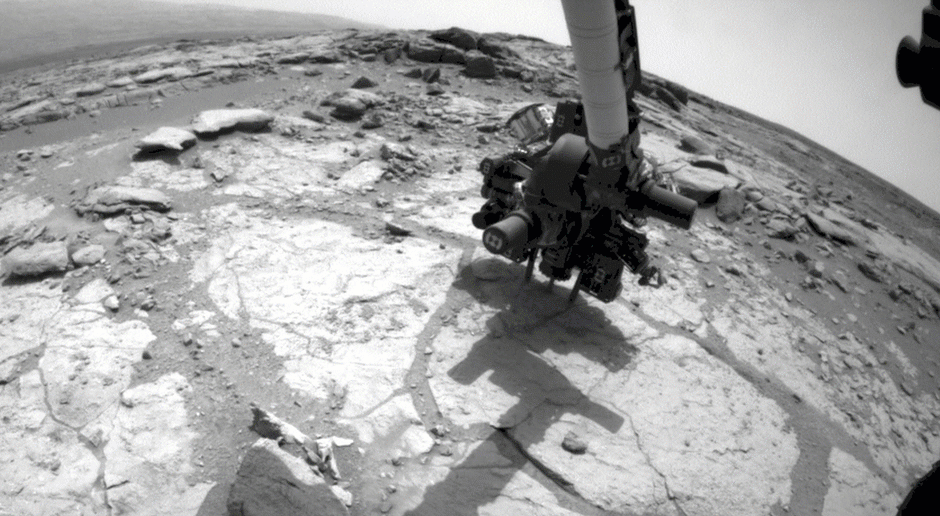
This line of work is one of Curiosity’s specialties — in 2013, it became the first rover to drill a hole on the Red Planet. The mission team announced its 40th successful drill hole in March 2024. Analyzing the rock powder helps scientists learn more about Gale Crater’s past, when it was a lake filled with water.





